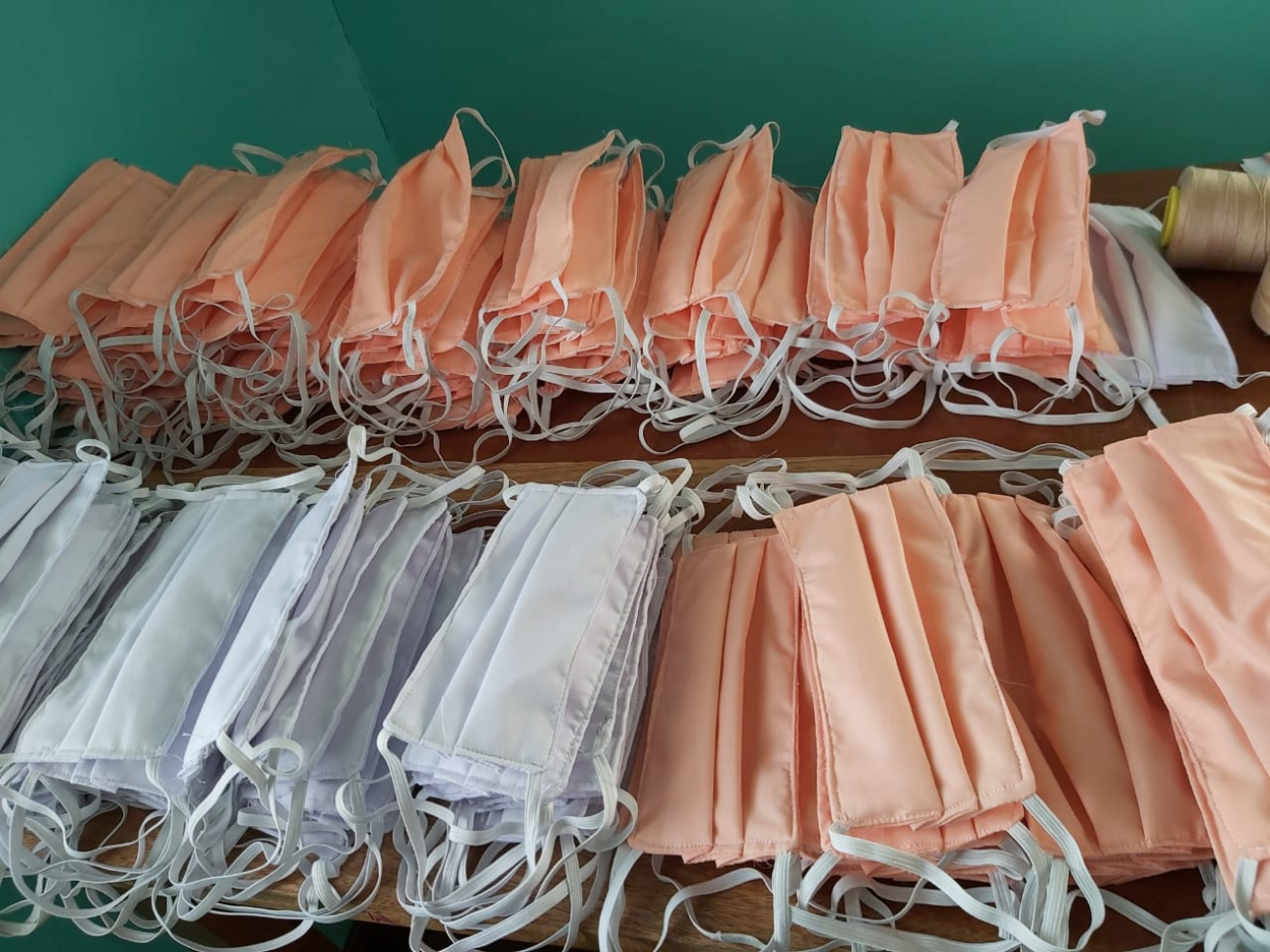Asylum seekers assist in keeping their new Belizean communities safe

Refugees and asylum seekers in the small Central American country have been stepping up to prevent a second wave of COVID-19 in Belize.
Karla Hernandez* has been sewing what has become a life-saving tool amid the COVID-19 pandemic: face masks. The 31-year-old Honduran asylum seeker has volunteered to support Belize’s response to the coronavirus. “I have a feeling of satisfaction knowing that my contribution will help to keep others safe from the pandemic,” said Karla.
Karla is one of the refugees and asylum seekers in Belize contributing to their host communities by making facemasks. “I am grateful to this country, it has given me a home after having fled my home,” she added.
With Latin America becoming a global hotspot for COVID-19, the government of Belize continues to leave in place preventive measures despite no new cases being reported since April 14, including the mandatory use of facemasks when in public. With personal protective gear like facemasks becoming scarce across the country, refugees themselves have become engaged in making masks to prevent further outbreaks.
Every day, Karla and her fellow asylum seekers produce an average of 150 masks that are being donated to local clinics across the country. “This is the first time that I am sewing for other people,” said Karla who received training in making the masks from Humana People to People, a partner of UNHCR, the UN Refugee Agency.
“Learning new skills or being able to put their abilities to work is crucial for the successful integration of refugees in their new homes,” said Andreas Wissner, Head of the UNHCR Office in Belize.
“This activity demonstrates that asylum-seekers and refugees have the ability to make tangible contributions to society, to assist the country that offers them a new home,” he added.
Karla, her husband, Jose Hernandez*, and their 8-year-old son were forced to flee their native Honduras, after receiving numerous threats from gangs. “The gang called me, giving me and my family an hour to leave our home or else they would come and kill us,” she said.
Hundreds of thousands of people like Karla have fled brutal gang violence in the north of Central America. Escaping extortion and death threats, some 720,000 people from Honduras, Guatemala and El Salvador have sought protection from violence and persecution, more than half of them across borders.
Karla and her family arrived in Belize in 2018, and found a home in the Bella Vista village, a refugee community located in the deep south of the country in Toledo District, where they are hoping to rebuild their lives. “I like living here because it is a safe country to raise my son away from the violence we left behind and there are many opportunities,” she said.
Like them, some 3,000 people have sought asylum in Belize, where UNHCR, and partners provide support to help people forced to flee to file asylum claims and integrate in their new communities. UNHCR also provides humanitarian assistance to asylum seekers and refugees and supports the government response in curbing the spread of the coronavirus throughout Belize.
Though she and her husband are currently unemployed, Karla hopes her training in sewing will allow her to generate income now that strict movement restrictions have been lifted. “I dream of opening my own tailor shop where I can sew for others and be able to provide for my family,” she said.
*Names changed for protection reasons


